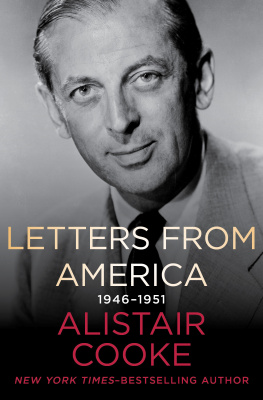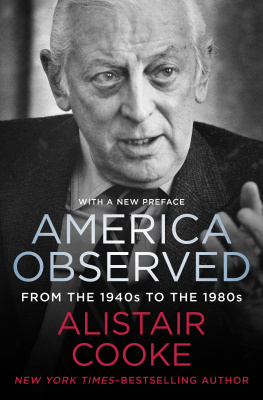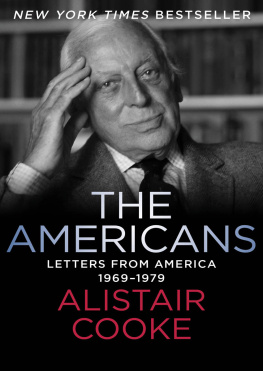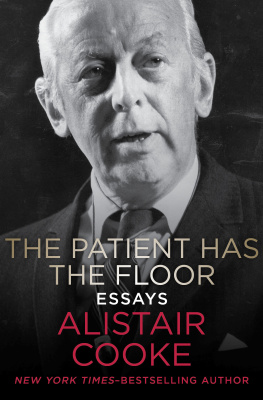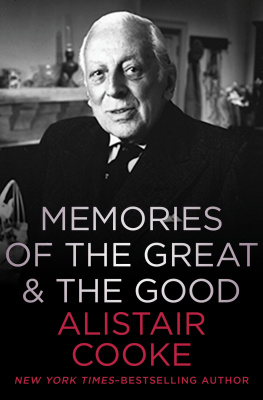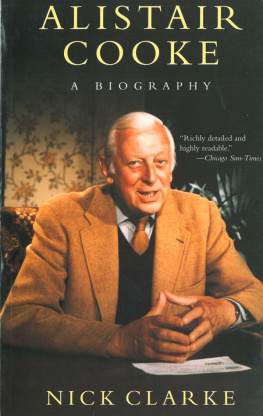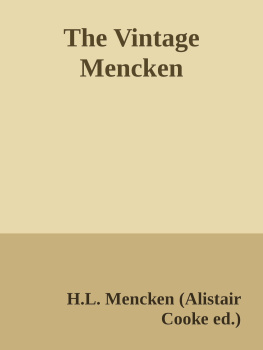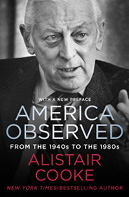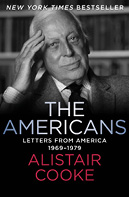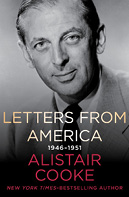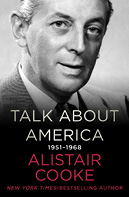Alistair Cooke - Letters from America, 1946–1951
Here you can read online Alistair Cooke - Letters from America, 1946–1951 full text of the book (entire story) in english for free. Download pdf and epub, get meaning, cover and reviews about this ebook. year: 2015, publisher: Open Road Media, genre: Art. Description of the work, (preface) as well as reviews are available. Best literature library LitArk.com created for fans of good reading and offers a wide selection of genres:
Romance novel
Science fiction
Adventure
Detective
Science
History
Home and family
Prose
Art
Politics
Computer
Non-fiction
Religion
Business
Children
Humor
Choose a favorite category and find really read worthwhile books. Enjoy immersion in the world of imagination, feel the emotions of the characters or learn something new for yourself, make an fascinating discovery.
- Book:Letters from America, 1946–1951
- Author:
- Publisher:Open Road Media
- Genre:
- Year:2015
- Rating:3 / 5
- Favourites:Add to favourites
- Your mark:
Letters from America, 1946–1951: summary, description and annotation
We offer to read an annotation, description, summary or preface (depends on what the author of the book "Letters from America, 1946–1951" wrote himself). If you haven't found the necessary information about the book — write in the comments, we will try to find it.
As the voice of the BBCs Letter from America for close to six decades, Alistair Cooke addressed several millions of listeners on five continents. They tuned in every Friday evening or Sunday morning to listen to his erudite and entertaining reports on life in the United States. According to Lord Hill of Luton, chairman of the BBC, Cooke had a virtuosity approaching genius in talking about America in human terms.
Letters from America: 19461951 contains highlights from the first five years of Alistair Cookes legendary BBC radio program, years when listeners were eager to put the horrors of World War II behind them.
Cookes lively and illuminating dispatches from New York perfectly capture the spirit of the times. From the significance of Labor Day to reflections on the changing seasons to the heroic Long Island duck that saved two people from drowning, little escapes the broadcasters sharp reportorial eye and affable wit. This collection includes Cookes historical tour of Washington, DC, and his thoughts on why New York is such a singular city, and covers more serious topics such as the Soviet threat and the anxieties of the atomic age. Always captivating, Cooke treats the reader to profiles of Joe Louis and Will Rogers and reflections on Damon Runyons America, and concludes with a Letter to an Intending Immigrant.
Letters from America: 19461951, the first volume of Cookes iconic broadcasts, offers a captivating journey through culture, history, and politics and is a classic of twentieth-century journalism.
Alistair Cooke: author's other books
Who wrote Letters from America, 1946–1951? Find out the surname, the name of the author of the book and a list of all author's works by series.

